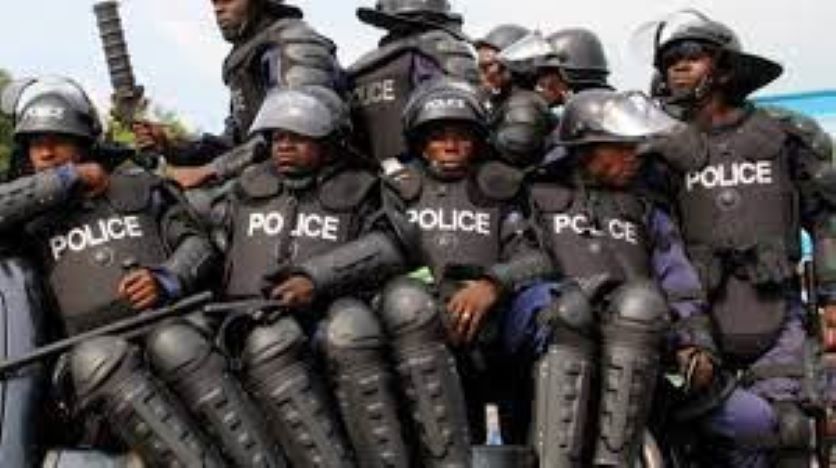By Law Mefor
The escalating level of insecurity in the nation is forcing many citizens to wonder if the government can still save Nigeria. The minister of state for defence just ordered the service chiefs to relocate to the North West after militants seized two Mine-Resistant Ambush Protected (MRAP) armoured vehicles from Nigerian forces and set them on fire.
The adage “security is everybody’s business” has its roots in reality. First and foremost, the most fundamental human right is everyone’s unalienable right to live. This assumes that everyone has the right to protect their life by any means necessary and that people generally have a tendency to do so.
However, in actuality and practice, a person’s ability to defend themselves is influenced by a variety of limiting variables. These limiting constraints are important, as demonstrated by the proverb “It’s better to have a gun and not need it than need a gun and not have it.” While the urge to protect oneself from dangers to one’s life and potential annihilation may be inherent, the ability to do so equally depends on a great deal of overwhelming external conditions. When these factors are not appropriately mediated, the need for self-defence becomes unachievable and even suicidal.
For the same reason, if these outside forces were left unchecked and uncoordinated, they would create more threats and necessitate the involvement of all levels of government. The well-being of citizens and the protection of lives and property are the two main purposes of government. The presence of any other justifications for government is only incidental and secondary.
Government is an abstraction that is given life by the law, state actors, and individuals who are granted legal authority to carry out certain designated tasks to fulfil the two primary purposes of government. According to philosophers such as John Locke, a government that cannot provide the safety of people’s lives, property, or well-being has no business being in power, and the people have the right to overthrow it using whatever legal means. Thus, the persistent deterioration of insecurity, which began a long time ago and was carried over to the Tinubu government, has persistently raised grave concerns about the purpose of government in Nigeria.
About twenty years ago, banditry and terrorism were foreign phenomena, known only to failing states and far-off places. However, the Global Terrorism Index states that Nigeria has become the home of at least three terrorist organisations since 2000. The forests and farmlands of numerous states have been overrun by terrorist bandits, ISWAP, and Boko Haram, who are now even pushing south. Worse still, in almost every state in Nigeria, killer herdsmen have been raping, killing, and maiming farmers, resulting in reprisals.
Apart from this, there are the actions of ethnic gaslighters in the South West, unknown gunmen (UGM) in the South East, and militants in the Niger Delta. This insecurity envelope demonstrates that there is not a single state or zone in Nigeria that can be considered safe. UGM and cults have taken control of the South East, which was once considered to be one of Nigeria’s safest regions.
For structural shortcomings, the Nigeria Police, which is the mother security architecture, is unable to handle insecurity in Nigeria. The nation’s military has to be drafted to intervene and is currently conducting internal security operations in more than thirty states. The military is handling even protests, such as the EndSars Protests at Lekki Toll Gate, where many people lost their lives. This isn’t right, especially in a democracy.
It is therefore surprising that the government is still dragging its feet over the urgent need to establish state police, community police, and forest guards, given this worrisome and depressing picture of the growing activities of these violent non-state actors that have turned vast swaths of the nation’s territory into ungoverned spaces. Even if one accepts the arguments made against the establishment of state police, one cannot understand the reluctance to establish community police and forest guards.
As President Bola Tinubu held an emergency meeting with governors since February, hope for the state police, community police, and forest guards was sparked. However, since then, the idea has remained silent, even in the face of a resurgence of insecurity manifest in escalating banditry, terrorism, and other violent crimes all over the country. For the seriousness and emergency nature of the security situation, a good start would have been to swiftly and properly set up the Community Police and the Forest Guards and use them as precursors and test runs for the creation of State Police ultimately.
To create Community Police and Forest Guards as Nigeria’s new security pillars, the federal government needs to muster the political will and form a technical committee to figure out how to effectively implement the initiatives. Nigeria already has the basic frameworks in place for the creation of Forest Guards and Community Police; they only need to be updated, strengthened, and legally established to hold them accountable.
Vigilantes and hunters are the basic structures that are prevalent throughout the nation. The 1999 constitution, Chapter 6, Section 214—Establishment of Nigeria Police Force—(1), which states that “There shall be a police force for Nigeria, which shall be known as the Nigeria Police Force,” needs to be amended to lay the foundation for the proper legal framework.
Aside from the legal structure, the other three elements that need to be in place for the vigilantes to become community police are: 1) comprehensive police training; 2) complete armament of the vigilantes; and 3) appropriate pay. Since bandits, terrorists, and other violent criminals carry AK-47s and even higher-grade military assault rifles, proper armaments cannot be anything less than these weapons, which the vigilantes and hunters cannot bear by law as of today.
In the absence of adequate training, the Inspector General of Police is unlikely to authorise the vigilantes to bear arms higher than pomp action weapons. It is like going to a knife fight with a penknife when vigilantes and hunters are armed with Dane guns and pump action firearms; they are utterly powerless against the bandits, terrorists, and other violent criminals. It’s a suicide.
Today’s vigilantes are predictably ineffective and sometimes even collude with criminals to make ends meet or even stay alive. Apart from poor remunerations, the vigilantes also lack the necessary comprehensive police training. Governors are also not adequately taking care of these vigilantes, and neither is the police providing them with training. Communities are typically the ones who are left to pay the vigilantes so little, and those who pay only peanuts will have monkeys working for them.
Applying the same logic, the hunters should serve as the central hub for the formation of Forest Guards. Proper pay, proper weapons, right training, and proper legal frameworks should all be in place before Forest Guards can function effectively. Retirees of the armed forces and police who are still physically fit and willing can join either the Community Police or Forest Guards.
The Asiwaju Bola Tinubu government should start with setting up the Community Police and Forest Guards if it is unable to establish State Police right away. If these steps are not followed immediately, the nation will remain imperilled as the rising levels of insecurity and ungoverned spaces across the nation continue to grow, steadily eating up the nation’s sovereignty.
*Dr. Law Mefor, an Abuja-based forensic and social psychologist can be reached via: drlawmefor@gmail.com; Twitter: @Drlawsonmefor.
Pix: Minister of Defence, Badaru



